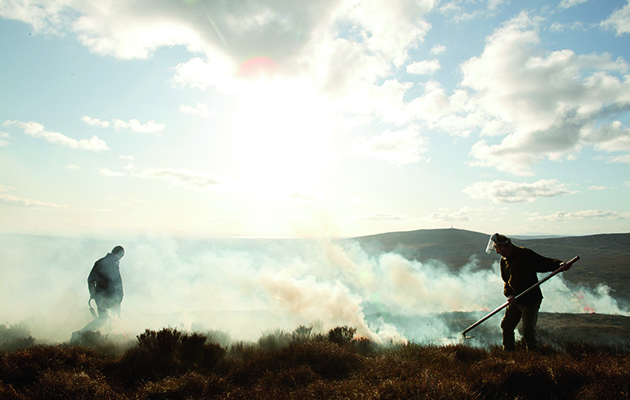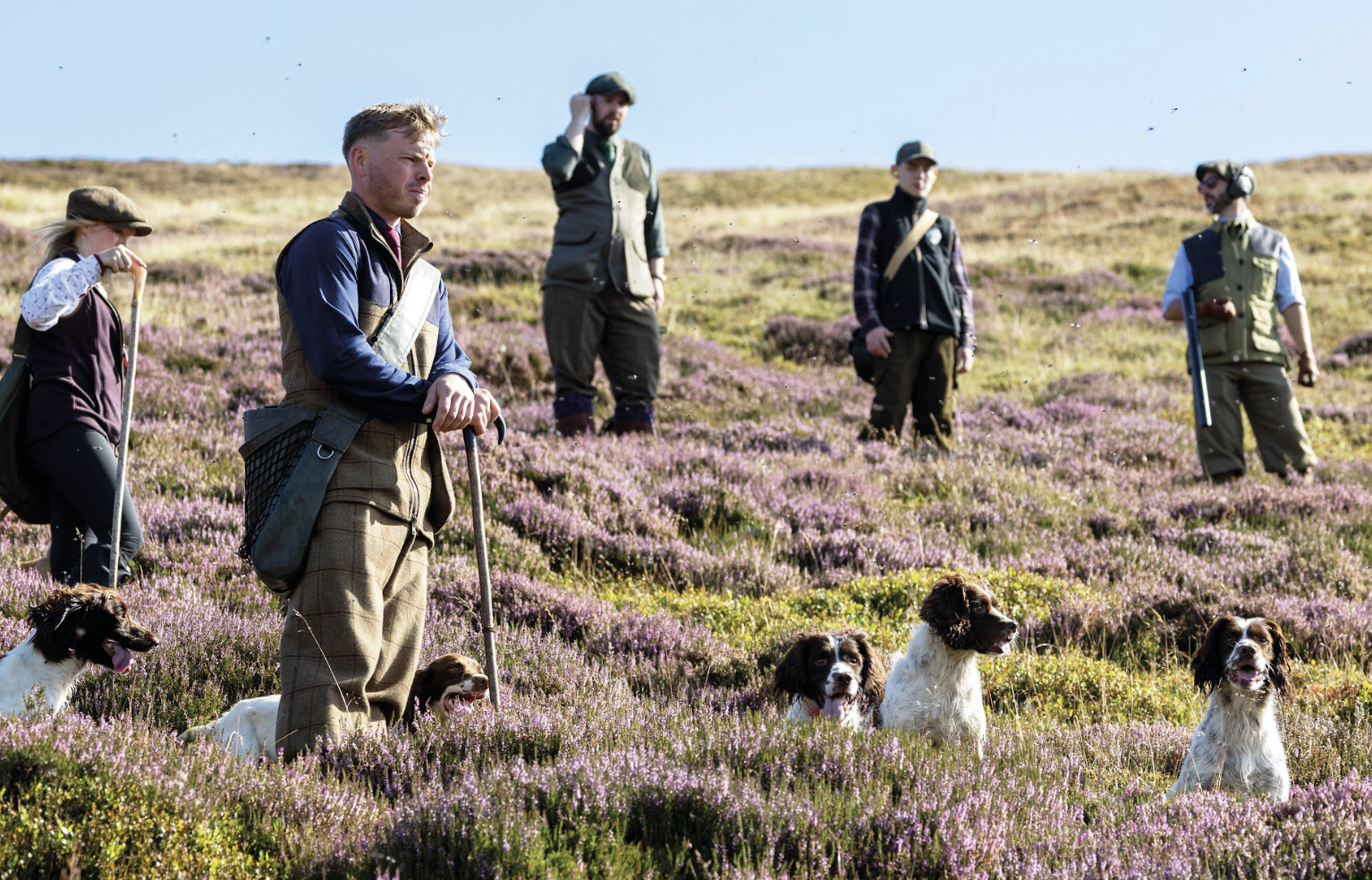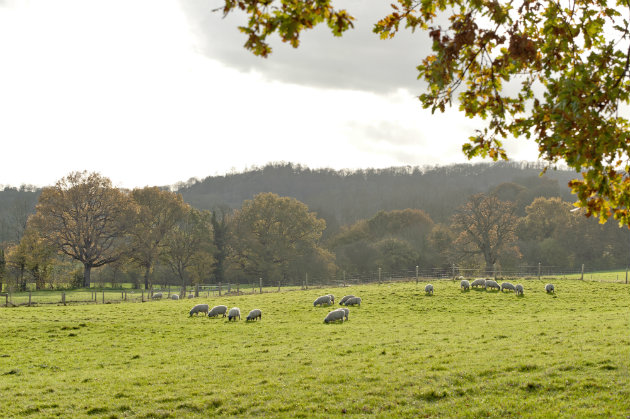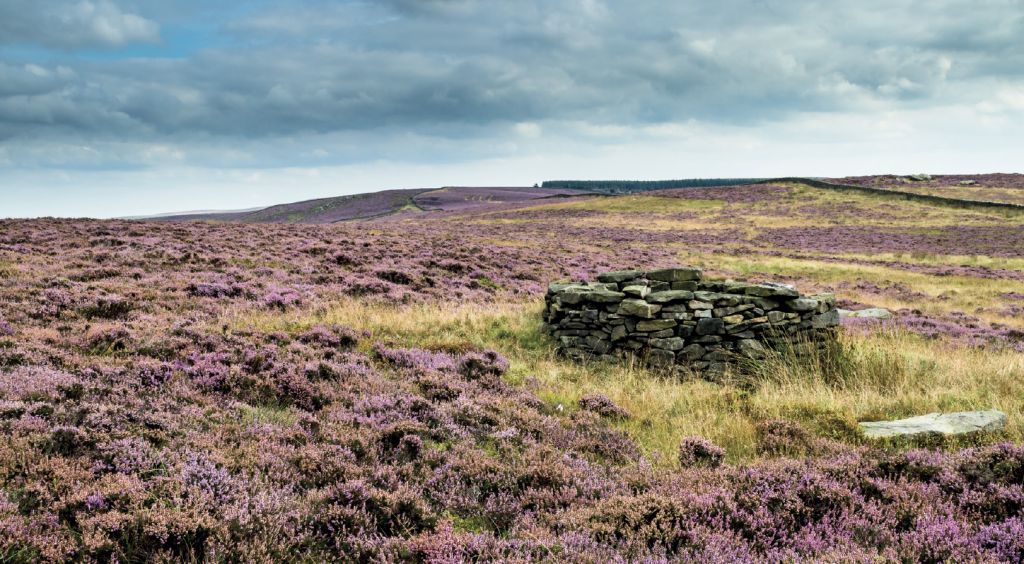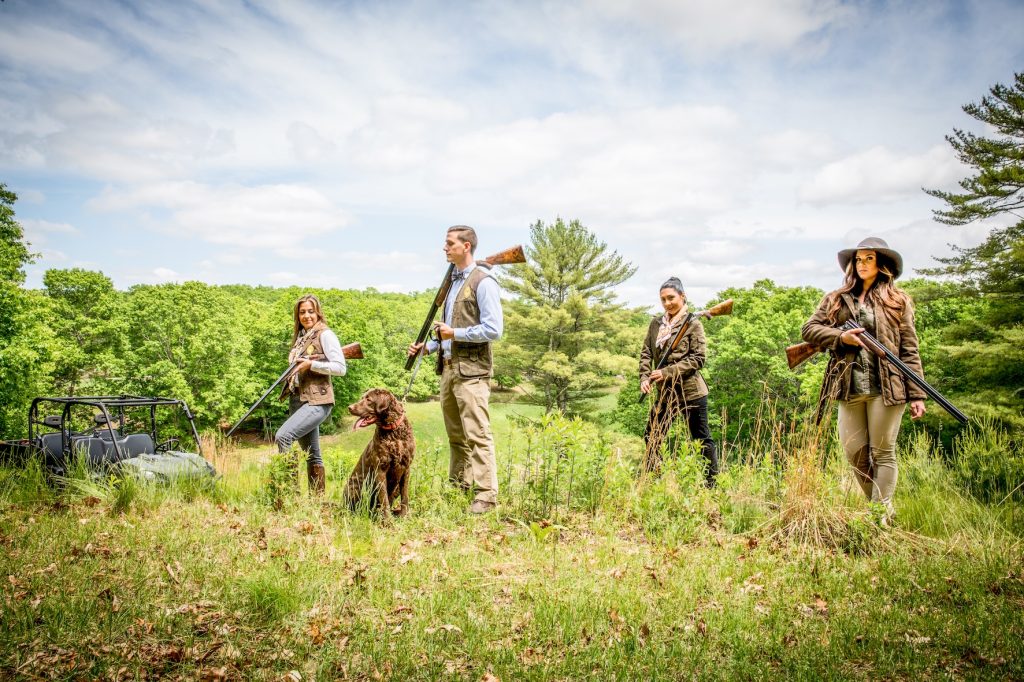Legislation
Shooting
So you want to get into shooting? Here’s how to start …
If you are looking to get into shooting of any kind, this easy guide will give you plenty of hints and tips
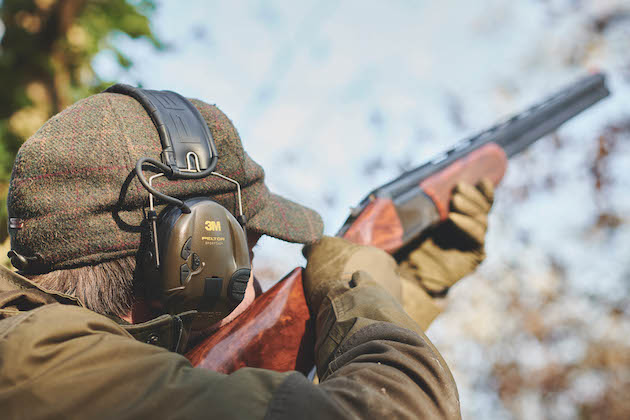 Peltor SportTac
Peltor SportTac
So you’ve decided that you want to ‘get into shooting’. But what do you mean by that? Have you always wanted to see how you’d perform on the clay ground? Or do you sometimes get invitations to go pheasant shooting but want to start properly.
Perhaps you want to do a spot of plinking at home with some garden airgunning. Or maybe being outside in the hills is what appeals and you want to investigate deer stalking. Or join your local rifle club to shoot targets.
Our guide below will help you choose the right discipline for you and show you how to learn, whether you need a gun, where to find a good instructor and how to apply for a firearms licence.
Popularity
Shooting in all its forms is becoming increasingly popular. In March 2019 Home Office figures showed that 591,302 people held a firearm and/or a shotgun certificate in England and Wales, an increase of 4,719 since the previous year. So you’re joining a growing number of people who love to be outdoors.
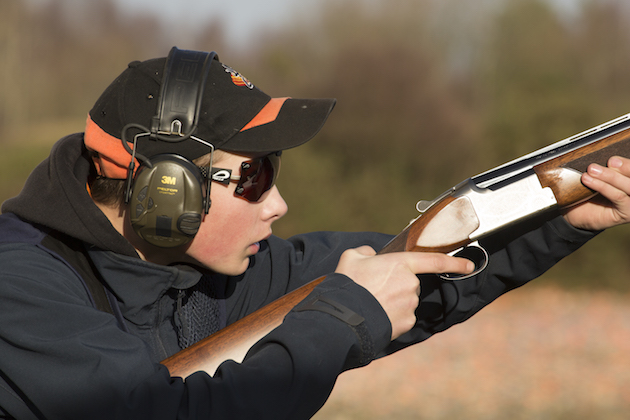
A 12-year old learning to shoot
What makes shooting special?
- Shooting can be enjoyed by all age groups
- It requires skill, concentration, good hand-eye co-ordination and focus
- People with disabilities enjoy shooting
- Game shooters and stalkers will enjoy eating what they shoot
- You’re out in the fresh air
- There are many different disciplines from which to choose so there will be one to suit you
- It plays an important role in conservation
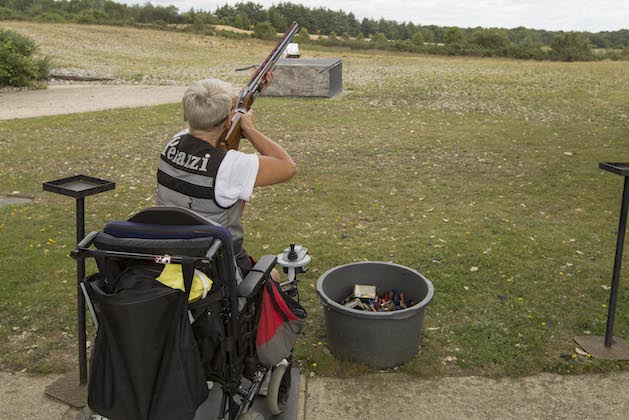
Many grounds are accessible to disabled shooters
Routes into shooting
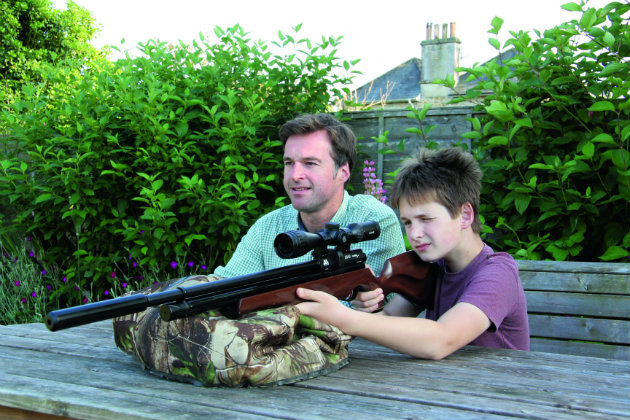
The garden range is an excellent place to introduce young people to airgun shooting
Starting with air rifles
Many shooters begin their shooting career by learning to shoot an air rifle.
This has a number of advantages. In England and Wales you don’t need a certificate for an air rifle (provided it is under 12ft-lb power) and youngsters under 18 can use them, provided they are supervised by an adult.
Air rifles and pellets are relatively inexpensive and there are plenty of airgun clubs around the country offering lessons, target ranges and competitions. You can carry out some useful pest control with an airgun and enjoy some plinking with an air rifle in your own garden, provided you follow straightforward rules. (Read more on choosing an air rifle here.)
By using an air rifle you will learn to shoot straight and how to handle a gun safely. You will also learn how to zero a scope. Read our useful article here on airguns and the law for more detailed information.
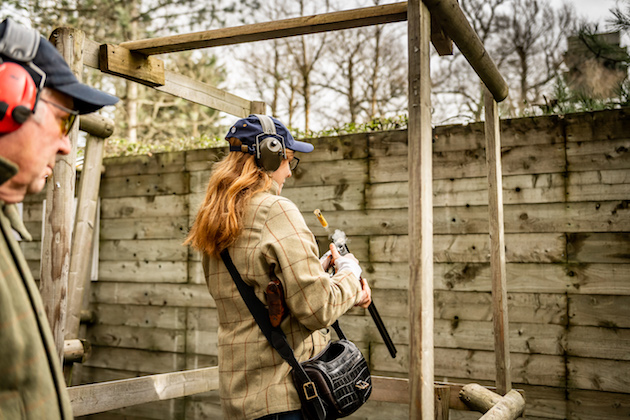
Learning clayshooting under the key eye of an instructor
Starting clay pigeon shooting
A good way of deciding whether the sport is right for you is to try shooting clays at an approved clay ground or practice range, or at a game fair or a country show. You will have the benefit of a qualified instructor who will show you how to handle the gun safely and correctly, how to stand and where to aim.
Try clayshooting this way and you won’t need a shotgun certificate as you can borrow a gun. If you decide that clayshooting is your thing, then you can join a local clay pigeon shooting club and get involved in shoot days and competitions. Most clubs welcome new shooters. Visit the Clay Pigeon Shooting Association to find a clay ground near you and a registered clay pigeon shooting instructor.
Clayshooting is very accessible and very popular. There is some kit you need to wear (ear defenders for one), but you won’t need to dress in tweeds or have your own gun if you are a member of a club, as you can borrow one.
We recommend that you always have lessons from a professional shooting instructor who will assess you for gun fit and stop you starting any bad habits.
If you do decide you want to invest in your own clay gun, then your instructor will advise you on what’s best and the steps you need to take for gun security and applying for your shotgun certificate.
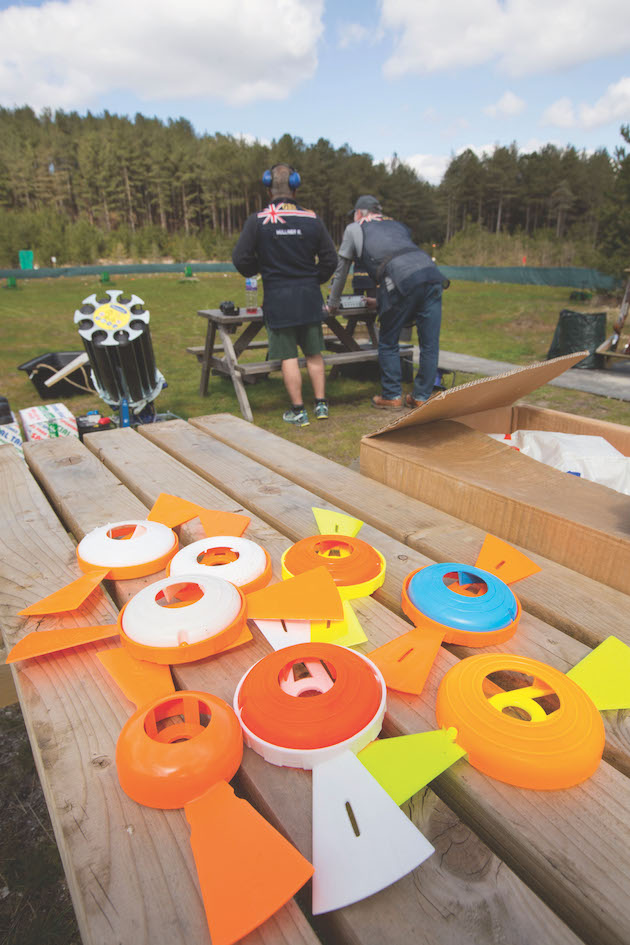
Helice shooting is a form of target shooting
Starting deer stalking
Culling deer is necessary to protect agricultural crops and forestry. Deer are prolific breeders and would suffer from disease and starvation unless controlled. The deer population in the UK is thriving, which offers spectacular sporting opportunities during the various deer stalking seasons.
Deer stalking plays an important role in conservation.
There are some excellent courses on deer stalking run by BASC which will get you started and give you the knowledge, understanding, skills and awareness you need. These take place around the UK. The beginner or novice shot can start with the Deer Stalking Certificate 1 (DSC1) Shooting Assessment. A firearms certificate or rifle is not needed for this as rifles are provided. If you do bring your own rifle, you need to bring your current firearms certificate (FAC). Participants start in the classroom by learning about safety and then move onto the rifle range to be taught technique and shooting positions. The course gives generous time on the range.
You can also join a local rifle club for target shooting.
A reading list to get you started in shooting
- The Deer Stalking Handbook – Graham Downing
- Total Airguns – Pete Wadeson
- The Sporting Rifle – Robin Marshall-Ball
- The Sporting Shotgun – Robin Marshall-Ball
- The Shotgun Handbook – Mike George
- The Knowledge – every Gun’s guide to conservation – GWCT
Do you need shooting insurance?
Shooting insurance is highly recommended as is joining one of the shooting organisations such as BASC who offers insurance as part of its membership benefits. You will also have access to legal advice.
How do I get a shotgun certificate?
- If you are a UK resident, you apply to your local police force (more information on how to apply for a shotgun certificate here)
- Leave plenty of time for it to come through – in some licensing areas it can take several months.
How do I get a firearms certificate?
- UK residents apply to the police. A firearms certificate covers rifles and shotguns with magazines which hold more than 2 cartridges. Application and referee forms can be obtained from police stations or the forms can be filled in online and printed.
- Applicants must give a good reason for every firearm they wish to acquire. The police will want evidence you have permission to shoot on land. There is no legal requirement to provide written permission, but this may speed up the process if you can.
- You must supply the names of two referees, who must be resident in the UK (they cannot be members of your immediate family) who are of good character and who have known you for at least two years.
- There is no legal requirement to pass any test or undertake any training prior to the grant of a firearm certificate.
- A firearm certificate is valid for 5 years and a variation must be obtained before any firearm can be added to it. It will be issued subject to restrictive conditions.
- Again allow plenty of time for your firearms certificate to come through.
Some FAQs about starting shooting
Q: A shooting friend has offered to teach me to shoot and says we’ll start by going out over a farmer’s fields where we have permission. Is this a good way to learn? Or do you think I should invest in lessons at a shooting school or with a qualified instructor?
A: Presumably you don’t have a shotgun certificate yet. If that is so, you can use a borrowed gun from your friend on private land for live quarry and clayshooting. The gun must be used in the presence of either the occupier of the private premises or persons authorised by them in writing. The borrower must be in the presence of the lender of the gun, who must be aged 18 or over and have a valid shotgun certificate.
One of our top recommendations in this beginner’s guide to shooting is that you have some lessons at a proper school or with an instructor, because there are many legal, safety and insurance questions involved here. In addition, you should not learn to shoot on live quarry.
Q: I’ve had a few lessons now and so I want to borrow a club gun and go out on my own around the ground’s layouts. When can I do this?
A: This all depends on the rules of the shooting ground – there is no legal issue provided the ground is registered correctly with the police. That said, we’d say that virtually all grounds would rather you went round with an experienced shooter – there’s always something you can learn – until you get your own shotgun certificate.
Q: I’m a bit concerned about damaging my shoulder – people have told me that a 12-bore shotgun generates a really powerful recoil. Is this true? I am a beginner and don’t want to get an injury right at the beginning.
A: You could get a bit of bruising when you take your first lessons. However this can be minimised by mounting the gun properly to your shoulder, which you will be taught to do. You should also wear a shooting jacket or waistcoat with some padding in the appropriate shoulder.
Q: What happens if my application for a shotgun licence is refused? Is there a way I can appeal?
A: Yes, you can challenge a refusal to grant or renew a shotgun certificate in court. Advice can be obtained by shooting organisations such as the British Association for Shooting and Conservation (BASC). If you want to take things further, you can also instruct a specialist solicitor.
Q: I’m worried that I might be fleeced by a dealer and sold a dud gun. What are my rights as a purchaser?
A: This is unlikely to be an issue as standards in the UK gun trade are very high. However the purchase of a gun is the same as buying any other consumer item. If you have a problem the dealer has to fix it within a reasonable time, offer you a gun of equal value or refund your money.
Q: I’ve seen a gun I want advertised by a dealer but the shop is over a hundred miles from my home. Can I buy the gun online and have it delivered to me?
A: By law, all gun transactions have to be made face-to-face between the buyer and the seller. In cases like this, the only way to avoid a long round trip is to get the seller to send the gun to a registered dealer in your area. If you do this, expect to pay a handling charge to your local dealer, plus carriage costs on the gun.
Q: I keep hearing about ‘shooting etiquette’. What is it and what does it have to do with me?
A: Shooting etiquette and manners are much more than saying please and thank you. Behaving correctly means behaving safely, treating the gamekeeper, loaders, shoot cook, beaters and pickers-up respectfully and wearing the right clothes. When you are out shooting you are an ambassador for the sport, and you want to show it in the best possible light. Oh, and eating what you shoot is also part of the etiquette.
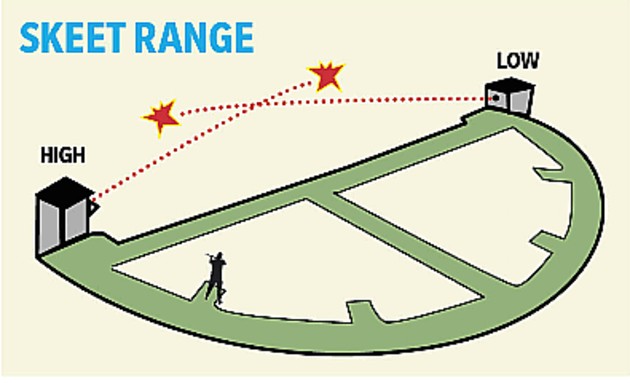
A Skeet shooting range features a high house, a low house and seven stands from where shots are taken
Q: I would like to try all the different clay disciplines, but I wonder if my gun will be suitable?
A: The most adaptable gun for any newcomer is a sporter – in other words, one designed for the English Sporting discipline. With a sporter you can tackle sporting and skeet, and most are also highly suitable for fieldshooting. You can also shoot the trap disciplines with a sporter, but not brilliantly. If you want to shoot trap seriously, get a specialist trap gun – but don’t expect it to be suitable for anything else.
You should also take a look at helice shooting.
Sporters usually weigh between 7.1/2lb and 7.3/4lb. Being a compromise gun in the way it handles, balances and shoots, you can also use a Sporter for skeet as well as pigeon and game shooting. So we usually advise newcomers to pick a Sporter as their first gun.
Q: What is the law when it comes to buying cartridges?
When you have your shotgun certificate you will need to produce it whenever and wherever you buy cartridges and you can buy them where you like. You also have to make the purchases in person – you can’t give your certificate to a friend to get cartridges for you.
Related articles
Shooting
Shotgun
All the hidden graft behind a grouse day
Discover the unseen work behind the Glorious Twelfth. From moor repairs to grouse counts and safety briefings, here's how a driven grouse day is prepared.
By Time Well Spent
Shotgun
Shotgun product reviews
FAMARS: the shotgun I didn’t know I needed
Discover the world of FAMARS - Italy’s master gunmaker blending exquisite engraving, elite engineering, and timeless craftsmanship. Meet the man behind its revival.
By Time Well Spent
Manage Consent
To provide the best experiences, we use technologies like cookies to store and/or access device information. Consenting to these technologies will allow us to process data such as browsing behavior or unique IDs on this site. Not consenting or withdrawing consent, may adversely affect certain features and functions.
Functional Always active
The technical storage or access is strictly necessary for the legitimate purpose of enabling the use of a specific service explicitly requested by the subscriber or user, or for the sole purpose of carrying out the transmission of a communication over an electronic communications network.
Preferences
The technical storage or access is necessary for the legitimate purpose of storing preferences that are not requested by the subscriber or user.
Statistics
The technical storage or access that is used exclusively for statistical purposes.
The technical storage or access that is used exclusively for anonymous statistical purposes. Without a subpoena, voluntary compliance on the part of your Internet Service Provider, or additional records from a third party, information stored or retrieved for this purpose alone cannot usually be used to identify you.
Marketing
The technical storage or access is required to create user profiles to send advertising, or to track the user on a website or across several websites for similar marketing purposes.

